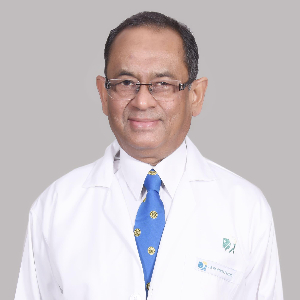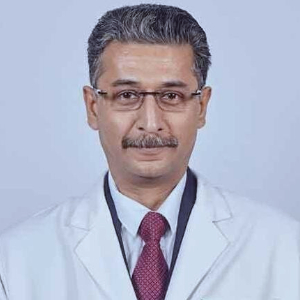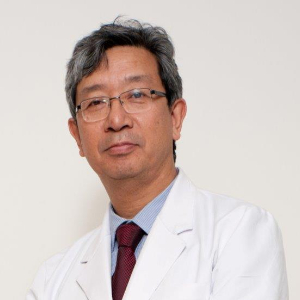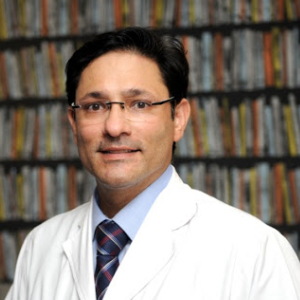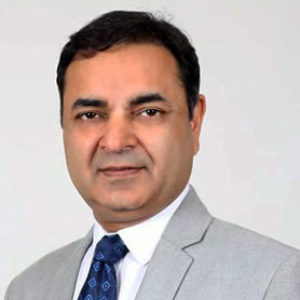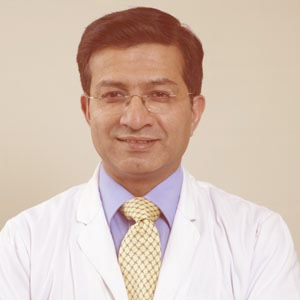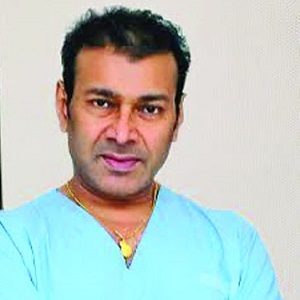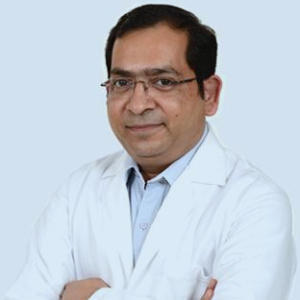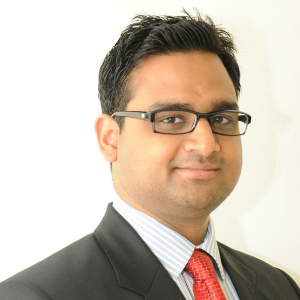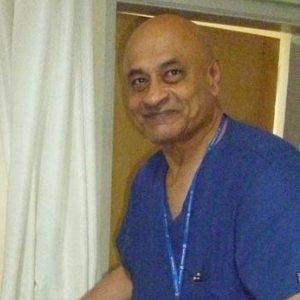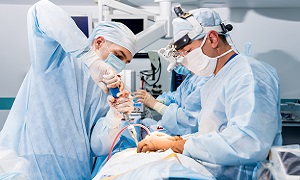Best Vertebroplasty Doctors in India
- Neurosurgeon & Spine Surgeon, New Delhi, India
- Over 30 years’ experience
Profile Highlights:
- Dr. Rajendra Prasad is one of the most experienced Neurosurgeons and Spine surgeons in India.
- Dr. Rajendra Prasad is an expert in all neuro and spine surgeries that including micro neurosurgery, minimally invasive spine surgery, surgery for degenerative spine diseases, surgery for brain and spine trauma, and neuro tumor surgeries.
- Neurosurgeon, Gurugram, India
- Over 22 years’ experience
Profile Highlights:
- Dr. Sandeep Vaishya is a renowned Neurosurgeon in India, with over 22 years of proficient experience in the field of advanced neurosurgery.
- He has closely worked with some of the top-notch institutes and hospitals in India.
- Dr. Vaishya is regarded as one of the top surgeons of Gamma Knife Surgery in South Africa and is also considered a renowned surgeon for brachial plexus injuries.
- Neurosurgeon, Gurugram, India
- Over 32 years’ experience
Profile Highlights:
- Dr. Rana Patir is one of the most experienced and highly qualified Neurosurgeons in India.
- He holds an extensive experience of 32+ years as a neurosurgeon and has performed more than 10,000 neurosurgical procedures till date.
- Dr. Patir is an expert in all kinds of neuro and spine surgeries with a specialization in minimally invasive brain and spine surgery, Epilepsy surgery, pediatric neurosurgery, and neurovascular surgery.
- Neurosurgeon and Spine Surgeon, Gurugram, India
- Over 15 years’ experience
Profile Highlights:
- Dr. S K Rajan is a renowned Neurosurgeon in Gurugram who specializes in open as well as minimally invasive spinal surgeries and has performed over 3000 complex spinal surgeries for diseases and disorders.
- Dr. S K Rajan’s expertise lies in Craniovertebral Junction and Lumbosacral Junction surgeries and is also an expert in spinal fracture surgeries, slipped discs, canal stenosis, and surgery for spinal tumors and spinal tuberculosis.
- Neurosurgeon and Spine Surgeon, New Delhi, India
- Over 25 years’ experience
Profile Highlights:
- Completing over 9000 successful neurological procedures, and still counting, Dr. Sudhir Tyagi is one of the top-notch names in India, diligently catering to neurological assistance with his vast knowledge and adept expertise.
- In fact, Dr. Sudhir Tyagi is the first neurosurgeon to use the Image Fusion Technique to localize targets in the deep part of the brain to perform functional stereotactic surgeries. He has great experience in all types of brain and spine surgeries.
- Neurosurgeon, New Delhi, India
- Over 20 years’ experience
Profile Highlights:
- Dr. Bipin Walia is one of the most famous neurosurgeons who has performed over 7000 successful neurosurgeries so far.
- He earned his MBBS and MS (General Surgery) degree from Armed Forces Medical College, Pune, followed by which his, M.Ch(Neurosurgery) from All India Institute of Medical Sciences, New Delhi.
- Dr. Bipin Walia has over 20 years of experience with his outstanding performance earning him quite some rewards and recognition.
- Orthopedic & Spine Surgeon, Chennai, India
- Over 33 years’ experience
Profile Highlights:
- Dr. Sajan K Hegde is an Orthopedic & Spine Surgeon with 33+ years of experience and is known for performing spine and joint surgeries using the latest technological advancements like minimally invasive sacroiliac joint fusion and cervical artificial disc.
- He has initiated many modern instrumentation systems in India including Cotrel, BAK cages, Harms Mesh Systems, and more.
- Dr. Hedge holds expertise in surgical and non-surgical spine treatments, tackling trauma, et al.
- Neurosurgeon & Spine Surgeon, New Delhi, India
- Over 20 years’ experience
Profile Highlights:
- Dr. Anil Kumar Kansal is a well-known neuro and spine surgeon in Delhi with over 2 decades of experience.
- He has performed over 10,000 neurosurgical procedures including 4500 brain surgeries, 500 endoscopic brain surgeries, 2000 spine surgeries, 400 aneurysms, and 500 anterior cervical microdiscectomies with 60 disc replacement procedures.
- Dr. Kansal holds great skills in aneurysm clippings, neuro-modulation, epilepsy, and neurovascular surgery and has handled several such types of cases in his career.
- Orthopedic Surgeon & Spine Surgeon, Gurugram, India
- Over 10 years’ experience
Profile Highlights:
- Dr. Himanshu Tyagi is a well-known Spine surgeon specializing in Minimally Invasive Spine Surgeries (MISS).
- He has over a decade of experience in the field and is trained to perform all kinds of reconstructive and corrective spinal surgeries.
- He is trained to perform intradural as well as extradural spinal procedures and does surgeries by both anterior and posterior approaches.
- Orthopedic Surgeon & Spine Surgeon, New Delhi, India
- Over 30 years’ experience
Profile Highlights:
- Dr. Rajagopalan Krishnan is a well-known orthopedic and spine surgeon in India.
- He is one of the most highly accomplished and successful spine surgeons in Delhi performing more than 350 spine surgeries every year.
- He provides management and treatment of spinal disorders that includes disc and degenerative disorder, spinal tumor, spinal fractures, spinal trauma, and spinal infections.
Best Vertebroplasty Hospitals in India
Indraprastha Apollo Hospital, New Delhi
- City: New Delhi, India
Hospital Highlights:
- Indraprastha Apollo Hospital is a 700-bedded multispecialty hospital in the heart of the capital of India. It is a part of Apollo Hospital group, one of India’s most reputed healthcare chains. Indraprastha Apollo Hospital has been accredited by Joint Commission International, making it the first internationally accredited hospital in the country in 2005.
- There are 52 specialties in the hospital with one of the best cardiology centers in the country. The hospital is also equipped with State of the art infrastructure facilities with the largest Sleep Lab in Asia and the largest number of ICU bed facilities in India.
- The hospital also has one of the largest dialysis units in India along with a dedicated Bone Marrow Transplant unit.
- The latest and highly advanced technologies that are installed in the hospital include Da Vinci Robotic Surgery System, PET-MR, PET-CT, Cobalt-based HDR Brachytherapy, Brain Lab Navigation System, Tilting MRI, Portable CT scanner, 3 Tesla MRI, 128 Slice CT scanner, DSA Lab, Endosonography, Hyperbaric Chamber and Fibro scan.
Fortis Memorial Research Institute, Gurugram
- City: Gurugram, India
Hospital Highlights:
- Fortis Memorial Research Institute is a multi-super-specialty, quaternary care hospital with 1000 beds. The hospital comprises reputed clinicians, and international faculty and is also equipped with cutting-edge technology. The hospital is a part of Fortis Healthcare Limited, a reputed chain of private hospitals in India.
- It is a NABH-accredited hospital that is spread across 11 acres of land and has a capacity of 1000 beds. The hospital has 55 specialties and is one of the premier health care centers in the Asia Pacific region popularly known as “the Mecca of Healthcare”.
- The hospital has 260 diagnostic centers and is also equipped with the latest and advanced techniques that include 3 Telsa which is the world’s first Digital MRI technology. The hospital also has world-class Radiation Therapy techniques which have been developed by leading technology experts from Elekta and Brain Lab.
Apollo Hospital, Chennai
- City: Chennai, India
Hospital Highlights:
- Apollo Hospitals, Chennai, is one of the best hospitals for heart care in India. Over the years, Apollo has expanded all over India, as a healthcare chain.
- India’s first ‘Only Pancreas’ transplant was performed in Apollo Hospital. The hospital is known for successfully performing Asia’s first en-bloc combined heart and liver transplant, and over the years, it has attained a remarkable achievement in the global healthcare space. Around 3-4 organ transplants are performed in the hospital per day.
- Equipped with over 500 beds, this hospital in Chennai was established in 1983 and since then has been among the most preferred hospital for patients from all over the world.
- The hospital holds accreditation of the NABH and JCI and is the first hospital in India to be ISO 9001 and ISO 14001 certified. It is also the first South Indian Hospital to receive subsequent reaccreditation from the JCI USA 4 times.
Medanta-The Medicity, Gurgaon
- City: Gurugram, India
Hospital Highlights:
- One of India’s best and largest multi-specialty hospitals, Medanta was built with the aim to bring India to the highest standards of medical care. The hospital has been providing the best medical services to its patients, since its inception, with care, commitment, and compassion.
- Equipped with 1250 beds, the hospital was founded by Dr. Naresh Trehan in the year 2009 with an aim to provide the best medical care at affordable costs. The hospital is spread across 43 acres and includes 45 operation theatres and 350 beds dedicated solely to ICU. The hospital includes over 800 doctors, and more than 22 specialty departments and has a dedicated floor for individual specialty in order to offer the best services under one roof.
- The hospital is considered one of the premier institutes in India for Cardiac Care and includes staffs and members of high caliber. The hospital has 6 distinct centers of excellence.
Max Super Specialty Hospital, New Delhi
- City: New Delhi, India
Hospital Highlights:
- One of the well-regarded providers in India committed to the highest standards of clinical excellence and patient care, Max Super Specialty Hospital is a part of Max Healthcare, which is the second-largest healthcare chain in India. Regarded as one of the most well-regarded healthcare providers in the country, Max Super Specialty Hospital is committed to the highest standards of clinical excellence as well as patient care. The hospital is also equipped with the latest technology as well as cutting-edge research. The hospital is known to deliver and ensure the highest level of patient care.
- The hospital has more than 500 beds and offers treatment for over 35 specialties. The hospital also holds the credit of having installed the first Brain Suite in Asia. This is a highly advanced Neurosurgical machine that allows MRI to be taken while surgery is ongoing.
- Other advanced and latest technologies are also installed in the hospital such as the 1.5 Tesla MRI machine, 64 Slice CT Angiography, 4D ECHO, LINAC, and 3.5T MRI machine.
Artemis Hospital, Gurugram
- City: Gurugram, India
Hospital Highlights:
- One of the most well-known hospitals in the Delhi NCR, Artemis Hospital is the first hospital in Gurugram to get accredited by the Joint Commission International.
- With more than 40 specialties, the hospital has been designed to be one of the most technically advanced hospitals in the country, with the best medical and surgical health care. The hospital has eleven special and dedicated centers, for Heart, Cancer, Neurosciences, etc.
- The latest technologies in the hospital include Endovascular Hybrid Operating Suite and Flat panel Cath Labs for the cardiovascular department, 3 Tesla MRI, 16 slice PET CT, 64 Slice Cardiac CT Scan, HDR Brachytherapy, and highly advanced Image Guided Radiation Therapy techniques (LINAC) are installed in the hospital.
- The hospital has won several awards as well, since its inception.
BLK Max Super Specialty Hospital, New Delhi
- City: New Delhi, India
Hospital Highlights:
- Equipped with 650 beds, BLK Superspecialty Hospital is the largest stand-alone private sector hospital in Delhi.
- With over 1500 healthcare providers and 150 globally renowned super specialists, the hospital is one of Asia’s largest Bone Marrow Transplant Centres. The hospital is known for having some of the best cancer doctors in the country.
- The hospital is NABH and NABL accredited and was inaugurated by the first Prime Minister of India. Pt. Jawahar Lal Nehru.
Gleneagles Global Hospitals, Chennai
- City: Chennai, India
Hospital Highlights:
- Established in 1999, Gleneagles Global Hospital, Chennai, is one of the top healthcare facilities in Southern India. It is part of the Gleneagles Hospital Chain, which is the fourth largest healthcare chain in the country. The hospital specializes in multi-organ transplants of kidneys, liver, lungs, heart, etc.
- The hospital has an excellent infrastructure and state-of-the-art lab and equipment set-up. The hospital boasts cutting-edge technologies, a highly skilled team of doctors and surgeons, and trained support staff. Located in Perumbakam, Chennai, it is one of India’s premier health care destinations. The hospital has performed some of the most complex surgical and clinical procedures in India including multi-organ transplantations.
- The hospital’s lung transplantation program is one of the best in the country. The hospital is known for having performed India’s first single lung transplant and first minimal invasive lung transplant. It is also the only Indian hospital to be associated with King’s College Hospital, London, United Kingdom for liver transplantations.
Fortis Hospital, Mulund, Mumbai
- City: Mumbai, India
Hospital Highlights:
- Fortis Hospital in Mulund is a 315-bed multi-speciality tertiary care hospital with five JCI accreditations that offers a wide variety of diagnostic and therapeutic services. The Fortis Hospital in Mulund delivers patient-centred treatment with cutting-edge technology, highly skilled and experienced surgeons, and paramedical staff.
- This institution houses Maharashtra’s largest multi-organ transplant centre. It is also the first heart transplant centre in western India to conduct 100 or more consecutive heart transplants in under four years. It is the only hospital in the city to have multi-organ transplants and has handled the youngest patient for angioplasty. Fortis Hospital Mulund now boasts the first advanced surgical robot in central Mumbai.
- Cardiology and heart surgery, urology, nephrology, neurosciences, orthopaedics, digestive care, emergency and critical care, and maternity care are among the services provided by the hospital.
Kokilaben Dhirubhai Ambani Hospital, Mumbai
- City: Mumbai, India
Hospital Highlights:
- Kokilaben Dhirubhai Ambani Hospital, Named after the wife of Indian industrialist Dhirubhai Ambani, the founder of Reliance Industries, this is one of the top hospitals in Mumbai. This 750-bed multi-specialty hospital became operational in 2009. Known as one of India’s most advanced tertiary care facilities, the hospital is designed to raise India’s global standing as a healthcare hub, with an emphasis on excellence in clinical services.
- Kokilaben Dhirubhai Ambani Hospital uses Protocol and Care Pathway based treatment models to ensure the best outcomes for patients.
- The hospital represents a confluence of top-notch talent, cutting-edge technology, state-of-the-art infrastructure, and, most importantly commitment.
- The hospital also holds the accreditation of the NABH, NABL, CAP, and JCI.
- The hospital has been recognized as the No. 1 Multispecialty Hospital in Mumbai and the West Zone for the fifth year in a row in 2020 by The Week.
Vertebroplasty
Vertebroplasty is a procedure that can help to stabilize compression fractures in the spine. A special cement is injected into a fractured vertebra which can help in relieving the pain and restoring mobility.
The procedure is helpful for people suffering from severe, disabling pain which can be caused by a compression fracture. People who undergo the procedure can find pain relief, increased mobility and reduced use of pain medications after the procedure.
Purpose
The procedure is generally recommended by doctors if:
- You are suffering from severe/prolonged pain or immobility
- Traditional methods for treating your fractured vertebra or back pain fails to provide efficient results
- The fractured vertebra is leading to more serious complications which can include deep vein thrombosis, respiratory problems, acceleration of osteoporosis, loss of height and emotional or social issues.
The procedure is considered a minimally invasive surgery as it is done through a small puncture in the skin, instead of an open incision. Typical vertebroplasty can usually take over an hour to complete.
Preparation
It is likely that your doctor will ask you to take no food or drink less than six hours before the vertebroplasty procedure is performed. If your surgery has been scheduled in the morning, the doctor might require you to consume no food or drinks after midnight on the night before the procedure. You may however drink a small amount of water around 2 hours before your procedure.
It might also be important to stop taking certain medications, as advised by your doctor, in the days leading up to the surgery. Some of the medications might need to be reduced, though some will need to be completely discontinued. It will generally depend on your health status.
Procedure
First, the patient will need to lie down comfortably on the table where the procedure will be performed. Local anesthesia will be next administered so that you will not feel any pain during the procedure, though you will remain awake. Using fluoroscopy, which displays x-ray images on a video monitor in real-time, the doctor will insert a bone biopsy needle into the fractured vertebra through a small puncture in the skin. The fluoroscopy helps to position the needle, inside the vertebrae compression fracture without causing any damage to a nearby critical structure, such as your spinal cord.
A specially formulated bone cement will next be injected under pressure, directly into your fractured vertebrae. The bone cement will fill the cracks within the bone so that a type of internal cast can be created for stabilizing the vertebral bone.
Then the needle is removed and the cement hardens in around ten minutes, which will be congealing the fragments of the fractured vertebrae as well as stabilizing the bone. The small skin puncture is then covered with bandages.
After the procedure
The patient will be kept under observation for some time to ensure that the medications have worn off and the bone cement has been hardened without causing any complications. It might be required for some surgeons that the patient remains lying for an hour or two before they walk around.
After your observation period is over, you are able to leave the medical facility and should be able to go home the same day. Patients are generally advised not to drive themselves home the day of the procedure and therefore, it is better if a friend or relative is able to drive them home. If further observation is required after the procedure then a short stay might be required at the hospital.
Recovery
For the first 24 hours after the procedure, bed rest is important. Generally, you can increase your activity levels gradually and most regular medications might be resumed. There might be some soreness at the puncture site for a few days which can be relieved with an ice pack.
Patients generally experience pain relief within 24 to 48 hours after the surgery. It might be possible to return to more strenuous physical activities after around 6 weeks but until then, it is best to avoid them.
A few weeks after your surgery, to ensure that your recovery is going properly, you should schedule an appointment with the doctor.
Risks
Vertebroplasty is generally considered a safe procedure for reducing pain which is caused by a vertebral compression fracture. However, surgery has some risks. Though the complication rate is less than four percent, some of the risks can be quite serious and need to be considered before you make a decision to undergo the surgery.
Like most surgeries, few patients may experience infection, excessive bleeding, or allergic reaction. Other potential complications of the surgery include:
Cement leakage- This issue occurs when the bone cement leaks outside of the intended vertebral compression fracture’s cracks. Though bone cement leaking outside rarely leads to complications, the cement can leak onto a nerve root, or the spinal cord, which can increase pain, tingling, numbness, and/or weakness.
Paralysis- As Vertebroplasty is performed near your spinal cord and other important nerves, if there is an error in the needle’s placement, it might potentially result in damage that can cause weakness and/or paralysis of one or two limbs.
Failure to Reduce Pain- Vertebroplasty may sometimes not improve the symptoms, even if the procedure went well, without any errors or complications.
There are many factors which may increase the risk of having unsuccessful vertebroplasty, leading to complications:
- Delayed procedure- If the procedure is not performed within around two months of your initial fracture, then the procedure is less likely to provide proper pain relief.
- Lower-quality fluoroscopy equipment- One important aspect of fluoroscopy is that it gives the surgeon an ability to see the location of the needle as it enters the body, and gets placed into the vertebra’s damaged part. There is evidence suggesting that when lower-quality fluoroscopy equipment is used, such as the portable version found in operating rooms of some hospitals, complications of vertebroplasty might go up.
- Compression fracture caused by cancer– When the procedure is done for vertebral compression fractures which were caused by cancer, the complication rate is around ten percent.
It is also worth noting that after the procedure for a few hours, your pain might worsen. However, this is not a reason for worry, as the pain will not last for a long time. Depending on a specific condition, you might face a few other risks. It is best to talk to your doctor regarding your specific condition so that you can understand all risks and benefits of the surgery.

